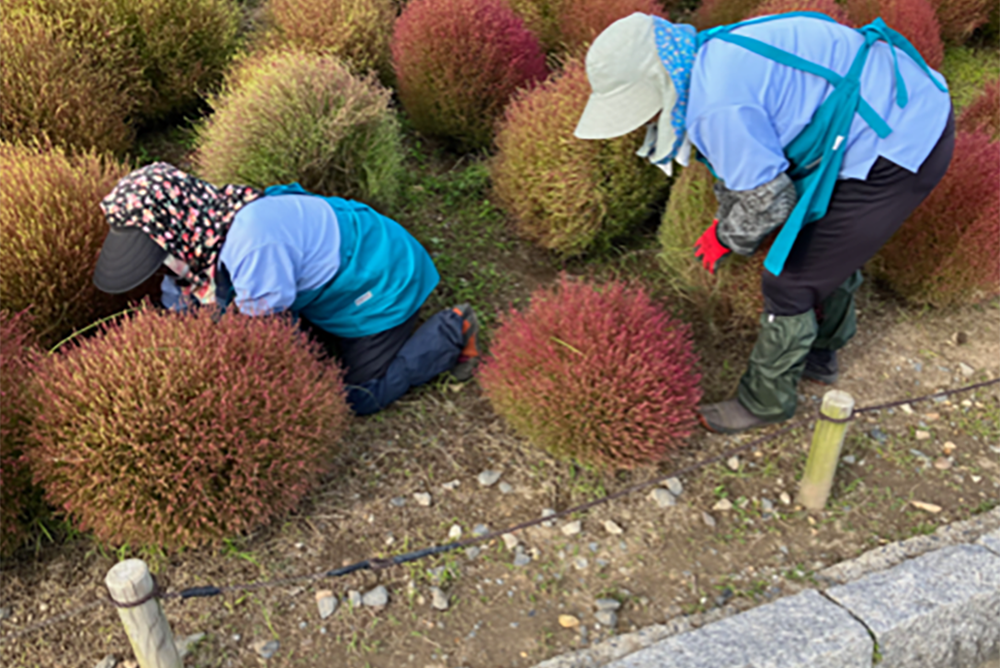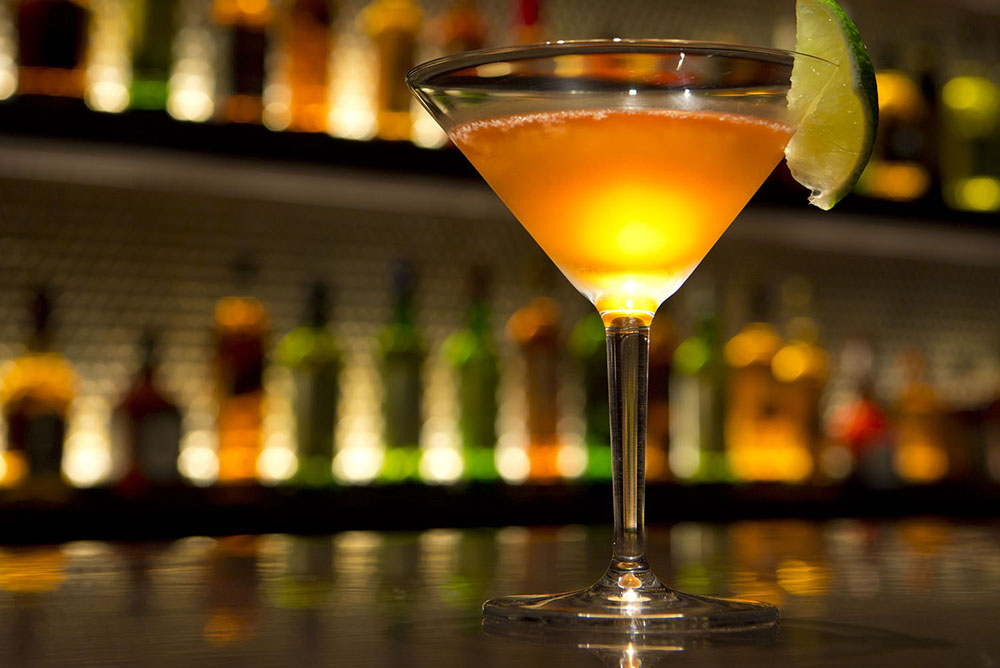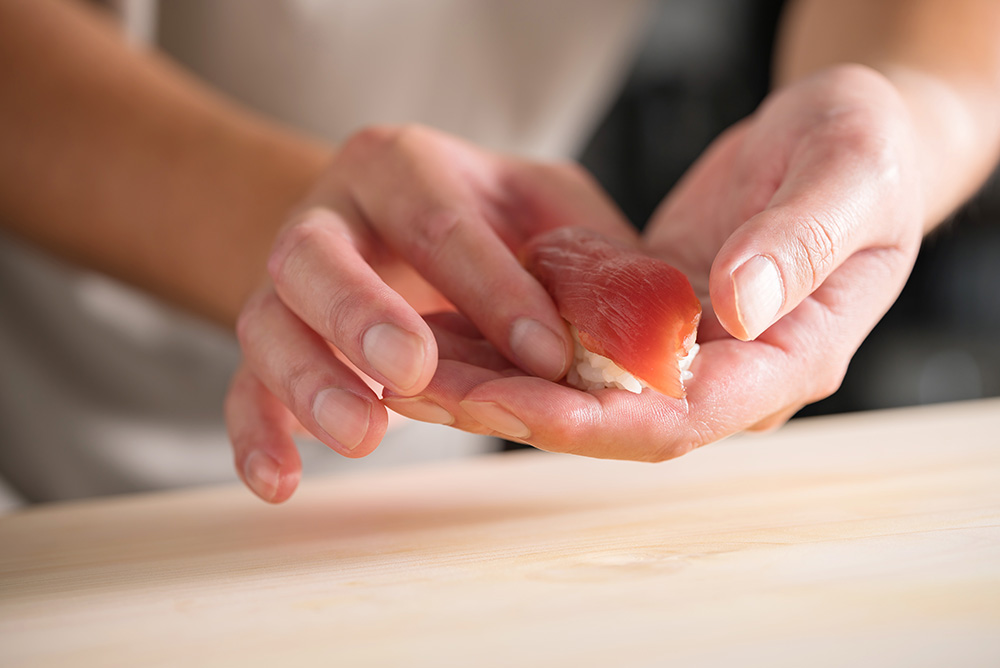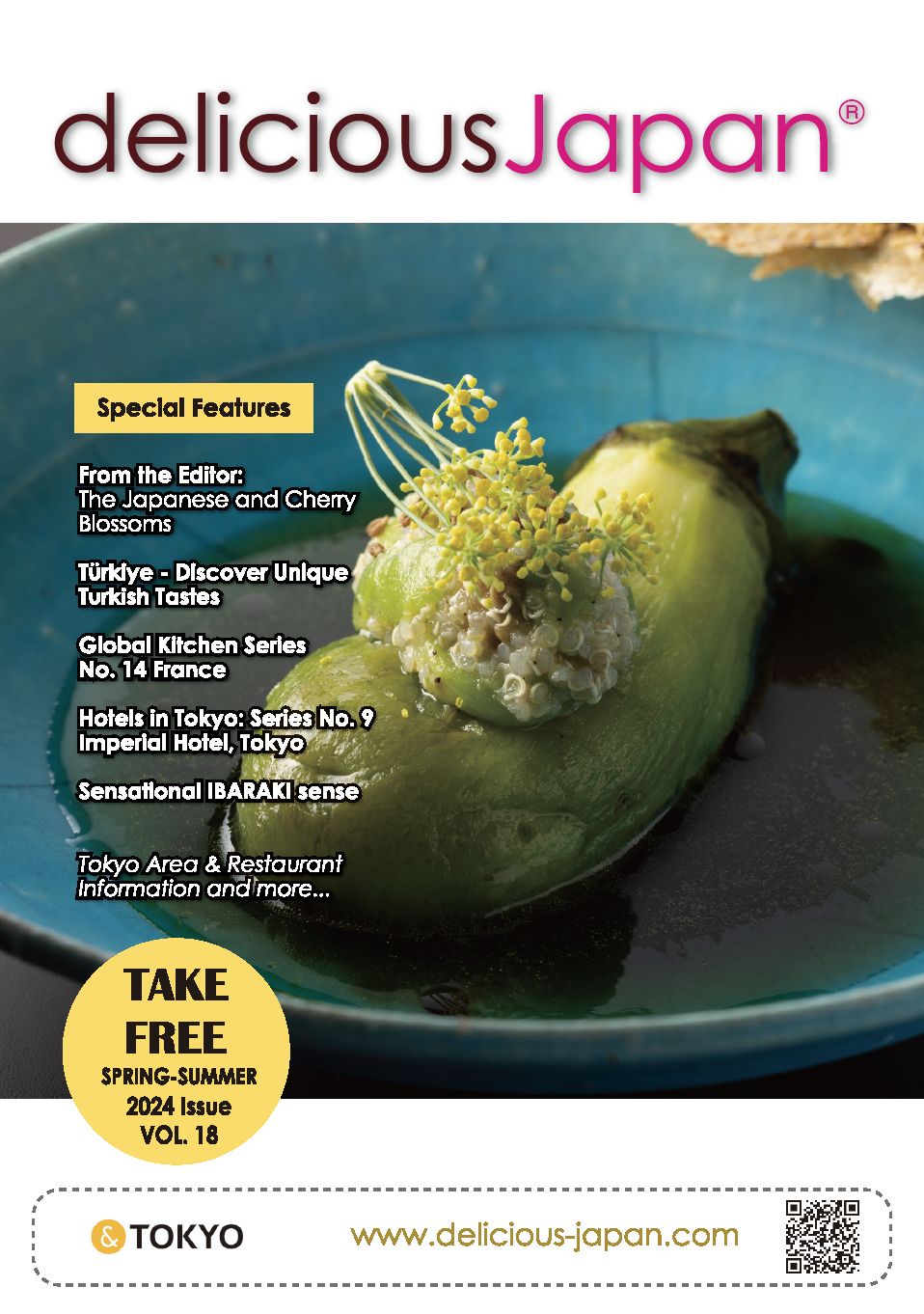Savoring Cultures: Hiroshi SUGISAKI's Journey from French Cuisine to Japanese 'Omotenashi'
Hiroshi SUGISAKI, CEO of Le Coeur Inc.
Could you give a short introduction about yourself?I am a French chef, and since 2017, I have worked as an international exchange coordinator, providing strategic consulting with the legacy of global mega-events such as the Olympics, Paralympics, and EXPO 2025 Osaka. I have been a DX producer for two consecutive years since 2023 and have served as the Executive Director for Overseas Affairs since April. Additionally, I have acted as an advisor to the United Nations World Tourism Organization on gastronomy tourism, as well as fostering friendly relations between Ireland and Japan.

Photo with Zurab Pololikashvili, Secretary-General of the UN Tourism
As a child, I was physically weak and took piano lessons but gave them up due to my short fingers. At the age of 14, I saw the one-star La Pyramide Piano in Vienne, France, on TV, and that is when I decided to become a French chef who could create such works.
What kind of Japanese cuisine would you like international guests to enjoy?Japanese cuisine, recognized as a UNESCO Intangible Cultural Heritage in 2013, is increasingly attracting attention. I hope that people can appreciate the unique elements of Japanese food culture that emphasize traditional ingredients, such as tofu, abura-age, and mirin. For example, the abura-age from Kyuzaya in Kyoto and the three-year-aged hon-mirin from Kankyou Sake Brewery in Aichi are exceptional products that can alter perceptions. It would be wonderful if experiencing these types of foods and ingredients in Japan could inspire individuals to return to their home countries and create new gastronomic innovations.

Kyuzaya : Fried tofu (abura-age)
Since 2000, alongside my work as a French chef, I have dedicated myself to researching and exploring the concept of Japanese identity. One of my specialties is vegan cuisine made exclusively from organic and pesticide-free vegetables and fruits. I do not use alternatives like plant-based meats or soy-based substitutes. I believe true health lies in the balance of the brain, body, and mind. It is crucial for the brain to recognize that delicious meals can be prepared from vegetables and fruits, as this is a significant element in fostering overall well-being.
In Japan, a rich culinary culture thrives, especially in the realm of fermented plant-based foods. I previously had the privilege of sharing my dishes with health-conscious models and actresses, receiving high praise in return. Additionally, I have had numerous opportunities to witness the struggles of children with allergies and atopic dermatitis, as well as the parents who support them. I have seen firsthand the stress of wanting to eat yet being unable to do so. Providing delicious meals that alleviate their stress and offer them hope is what I consider my true form of “omotenashi”—hospitality.

Shiori: The sweetness of the sweet potato mousse, which melts in the mouth like liquid nitrogen espuma, and the aroma of the sweet potato skin confit have received significant attention at events such as Miss Universe and children's cafeterias.
We delved into Turkish cuisine's potential in the Japanese market. I particularly emphasized the growing appeal of Turkish pasta dishes, highlighting their richness and the various elements that could captivate the Japanese palate.

Photo with Chef Osman
As of now, I have not yet had the opportunity to visit his restaurant. However, in the near future, I plan to visit his establishment, and through our shared passion for organic cuisine, I look forward to contributing to the gastronomies of both our countries.
Chef Osman held a tasting session. Did you get the chance to try any of his dishes? If so, could you share your honest thoughts on his cuisine?Chef Osman has a profound understanding of modern Japanese society, which is evident in the dish he presented featuring "Orzo," a Turkish short pasta that is virtually unknown in Japan. The unique attribute of Orzo is that it can be prepared with vegetables and meat without boiling, making it highly compatible with Japan's fast-paced market that seeks time-saving solutions. Orzo could ignite a growing demand for Turkish pasta in Japan. Chef Osman possesses remarkable ideas, and I am confident he will create a wonderful fusion of Japanese and Turkish culinary traditions.
Could you please share your future plans and aspirations in the culinary field?Seventeen years ago, I was involved in an explosion that left me with severe burns, and I was once told that returning to society would be impossible. However, with the support of people from around the world, I underwent eight years of rehabilitation and made a remarkable recovery, eventually resuming my global activities. Since 2021, I have coordinated gastronomic innovation initiatives that leverage the legacy of Expo 2025 Osaka, helping participating countries and Japan grow together through collaboration. I have been deeply involved in curating this initiative alongside numerous nations. I am scheduled to speak at Expo on September 8th and 9th. Delicious food gives people hope and dreams. As a chef, I aspire to continue contributing to world peace through the culinary arts.





